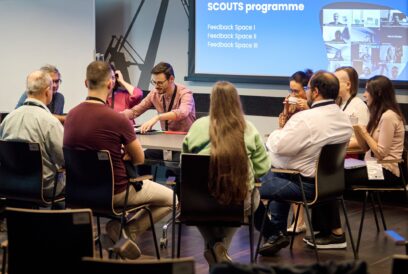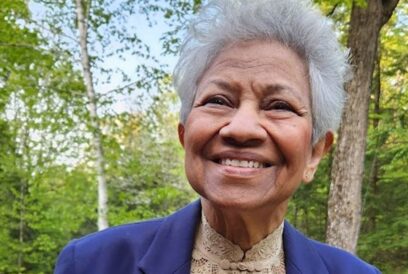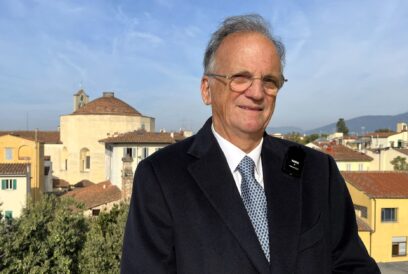

In the globalised world, the various forms of cultural heritage serve as resources for determining social dynamics like integration and exclusion. / Photo: Pexels
In the globalised world, the various forms of cultural heritage serve as resources for determining social dynamics like integration and exclusion. / Photo: Pexels
2018 is the year of European Cultural Heritage. However, the first research results also highlight questions of power and privilege. The question is: ‘whose’ European identity is presented throughout the ‘European Year of Cultural Heritage’?
Since 1983, the European Commission has been nominating a specific theme for a given calendar year. In 2018, the theme is cultural heritage.
Under the title Sharing Heritage, the Commission theme year aims to shape European identity by supporting institutions and projects in both adult education and academia.
UNESCO, one of the key partners, pursues a broad approach to the phenomenon. There are forms of built cultural or natural environments and buildings, which are known as tangible heritage sites. Many well-known sites are on the UNESCO World Heritage list such as the Wadden Sea in Germany. On the other hand, however, intangible cultural resources, like arts or traditional skills and technologies, are also part of this idea of understanding cultural heritage.
The focus of the theme year is on the potential of a shared ‘European Culture’ in contrast to heterogeneous social structures.
Funding of €8 million on a European level was allocated to support selected projects in the cultural field. The European Union also funds research projects in the field of cultural heritage, in a programme called Horizon 2020.
The focus of the theme year is on the potential of a shared ‘European Culture’ in contrast to heterogeneous social structures. Additionally, it intends to show that both local and European forms of cultural heritage are integral parts of the mutual social and economic development potential in Europe.
Interdisciplinary perspectives in heritage research
Consequently, at numerous European universities cultural heritage has become a core research topic.
One example of a research project, ‘Cultural heritage as a resource? Competing constructions, strategic usages and multiple adoptions during the 21st century’, can be found at Leibniz University in Germany where also I work in a subproject focusing on educational processes.
The project examines the complex field of cultural heritage from an interdisciplinary perspective and from multiple angles, such as forms of cultural heritage in urban (Barcelona, Manchester, Wroclaw and Berlin) and rural areas (Wendland, Germany), focusing research on specific areas and multiple ethnic groups.
Furthermore, the term ‘cultural heritage’ in educational situations is addressed. This is done to develop concepts for inclusive didactics in order to give as many people as possible the opportunity to experience their heritage from the past and preserve it for the future.
Heritage, privilege and power
The first research results highlight questions of power and privilege, aiming at understanding better how the construction of a ‘European Identity’ in Sharing Heritage can be interpreted.
Any form of cultural heritage is always a result of a process of (social) negotiation, in which many factors such as economics must be considered. The theme year thus offers many institutions in adult education the opportunity to present forms of European cultural heritage.
In the globalised world, cultural heritage acts as an anchor point for social affiliations on numerous levels but, at the same time, it is a point of demarcation for something interpreted as ‘foreign’.
However, certain actors such as the UNESCO World Heritage Committee are involved in shaping the financing and thus assessing the value of a certain perception of constructing a ‘European identity’. This shows that cultural heritage and its valorisation are also always a question of power.
In the globalised world, cultural heritage acts as an anchor point for social affiliations on numerous levels but, at the same time, it is a point of demarcation for something interpreted as ‘foreign’. Thus, the various forms of cultural heritage serve as resources for determining social dynamics like integration and exclusion.
Why are certain individual groups given more power to shape and experience their forms of heritage than others?
A question arises: Why are certain individual groups given more power to shape and experience their forms of heritage than others?
The exhibition of artefacts from the old (German) colonies in the Humboldt Forum (Berlin) stands as a good example. In this particular case, there are many critical voices from (black) minority groups concerning whether these artefacts should be better marked as ‘stolen art’. At this point, it is crucial to note the direct connection from cultural heritage and society.
Whose heritage?
Rodney Harrison, a British professor of Heritage Studies at University College London (UCL), therefore advocates that cultural heritage should not be seen merely as tangible or intangible. He suggests a more reflexive approach, adding the terms ‘official’ and ‘unofficial’ cultural heritage.
As early as 1999 Stuart Hall argued about many occasions when history was kept from minority groups.
With this addition, it is possible to perceive which cultural practices are authorised by the state or refer to some form of legislation. In contrast, there are many ‘unofficial’ cultural practices, traditions or buildings, which are not under legislative protection, although they have a high relevance for certain minority groups and are not familiar in society at large.
As early as 1999 Stuart Hall, one of the founding figures of British Cultural Studies, held a keynote at the National Conference entitled ‘Whose Heritage?’, in which he argued about many occasions when history was kept from minority groups.
In his speech, he primarily addressed the ‘Black British’ presence and advised that these ‘blind spots’ should be filled by adding their heritage to the collective memory of British history, thus also giving them more power to preserve their heritage.
The heritage of European minority groups should also be taken into account when building the ‘European Identity’.
Nonetheless, these critiques do not diminish the importance of sharing common European values such as diversity, tolerance and an intercultural dialogue, as is the aim during the European theme year.
Concerning the area of adult education, however, these critical insights help to keep in mind, that there are many forms of unofficial cultural heritage – tangible and intangible – which are not broadly represented in the accumulation of projects following the promotion of ‘Sharing Heritage’.
The heritage of European minority groups should also be taken into account when building the ‘European Identity’, so that it will serve as an anchor point for as many people in the European Union as possible.
So, it is all about the question: whose European Identity is presented throughout the European Year of Cultural Heritage?
References:
Hall, S. (1999). Whose heritage? Un-settling ‚the heritage‘, re-imagining the post-nation. (Keynote held 1999 at the National Conference ‘Whose Heritage?’)
Harrison, R. (2013). Heritage: critical approaches. New York: Routledge.
Tauschek, M. (2013). Kulturerbe – Eine Einführung. Reimer Kulturwissenschaften: Berlin.
Author








